
Head-Butting Or Rubbing Is Their Way of Saying “Hi”
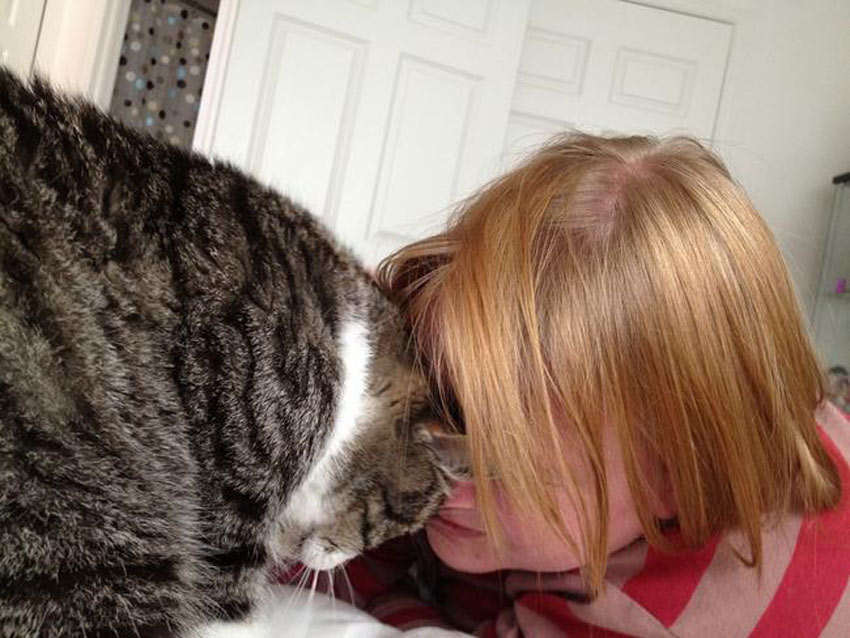
You may have noticed that whenever you’re around a cat they tend to bump into your legs, face, arm, or pretty much any available surface space on your body. This head-bump doesn’t mean they want to start a fight, though. It’s actually quite the opposite!
The bumping is a gesture, indicating that the cat trusts you and feels safe around you. It’s their way of saying hello! In addition, when they rub against something it transfers pheromones from their body, marking the person or object as safe and trustworthy. Cat behavior experts have named this action “bunting.”
Rolling On The Floor Can Mean A Few Things
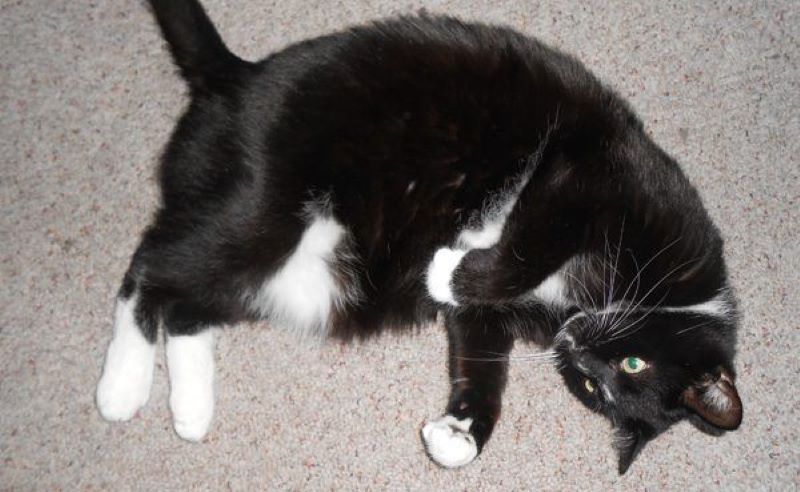
Cats lie down and roll around on their backs for a number of different reasons. However, there is one main factor that will have a cat on its back. They only roll over when they feel comfortable because showing off their belly is a sign of vulnerability.
The motion can simply be a way to scratch their back and stretch their muscles, or it can be an attempt to play and get your attention to engage in a game. The last reason could be that they are marking their territory, rolling around and transferring their scent on the ground.
Communicating With Their Eyes Doesn’t Mean They Have It In For You…But It Might
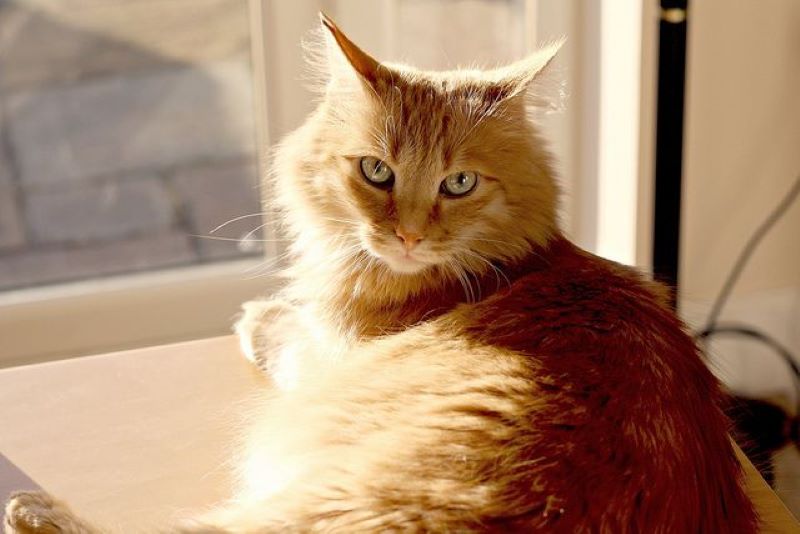
When a cat stares at you, more often then not they are trying to get your attention. But you have to be careful about the different types of stares. If a cat is staring at you very intensely, it could be an act of aggression, and it’s best not to stare back. You don’t want a cat pouncing on your face!
On the flip side of the coin, when a cat stares at you for a long period of time and then slowly blinks, it’s their way of showing affection. But that doesn’t mean you should go over and pick up the cat!
Kneading You With Their Paws Is A Good Thing
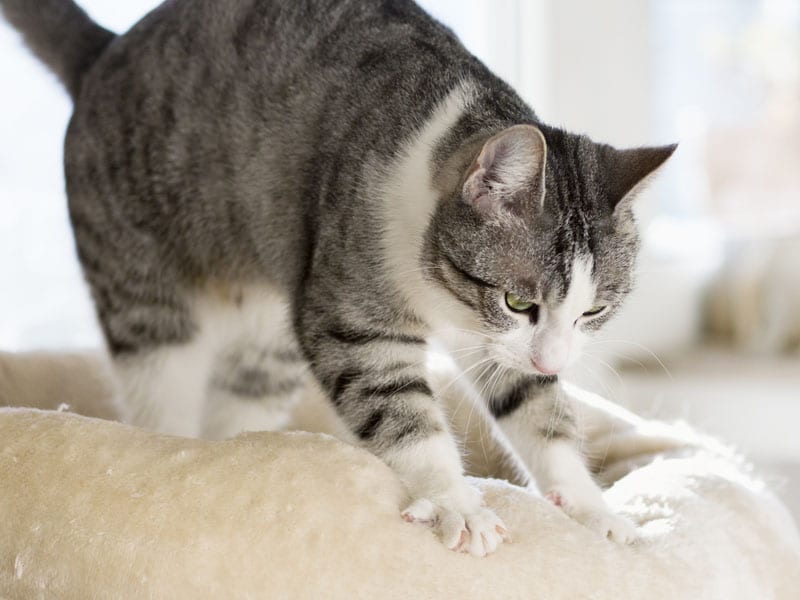
When kittens are born, one of their first instincts is to push on their mother’s mammary glands in order to stimulate her into producing more milk. Pretty much, it’s a survival tactic. This kneading motion stays with cats throughout their lives, not leaving their memory even years after they’ve stopped nursing from their mother.
Adult cats tend to do the motion when they associate a soft surface, or your body, with that of their mother’s. Many cat behavior specialists believe they knead when they’re feeling happy and content with where they are, or when they feel like they need to relieve stress.
If Your Cat Is Ignoring You, Don’t Take It Personally
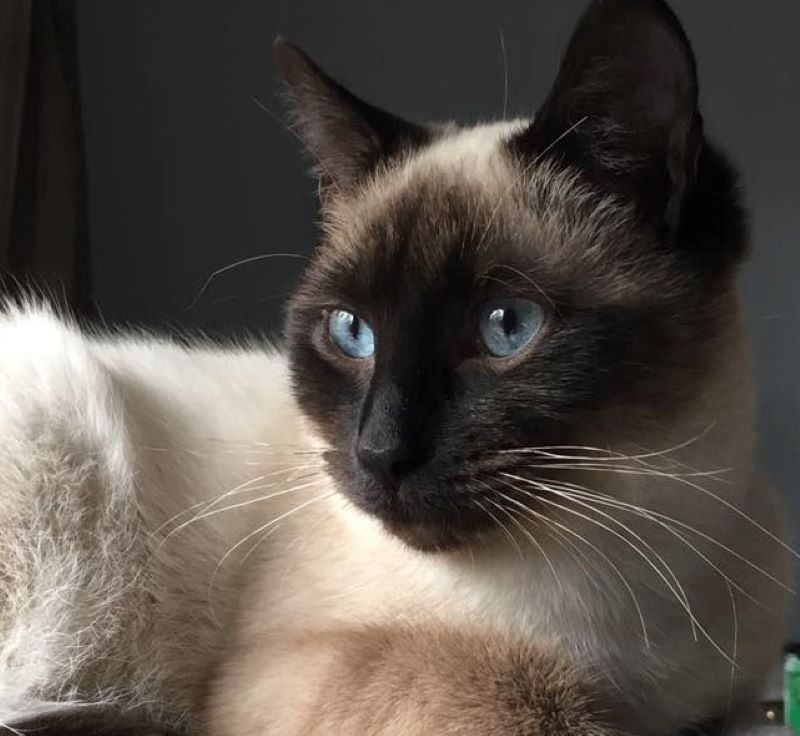
Cats are too smart for their own good; science has proven this. They know their names, and they know their owner’s voice, but unlike their dog counterparts, they tend not to answer. This personality trait is partially because cats will tend to only show affection on their terms.
This isn’t because they don’t hear you, it’s that they are choosing not to respond because they’re not interested in seeing you at the moment. Just don’t take it personally, it’s not out of spite, or because they don’t like you. Your kitty will come when they feel the need to seek out affection or to play.
Crying At Night Is A Result Of Having No Prey To Chase
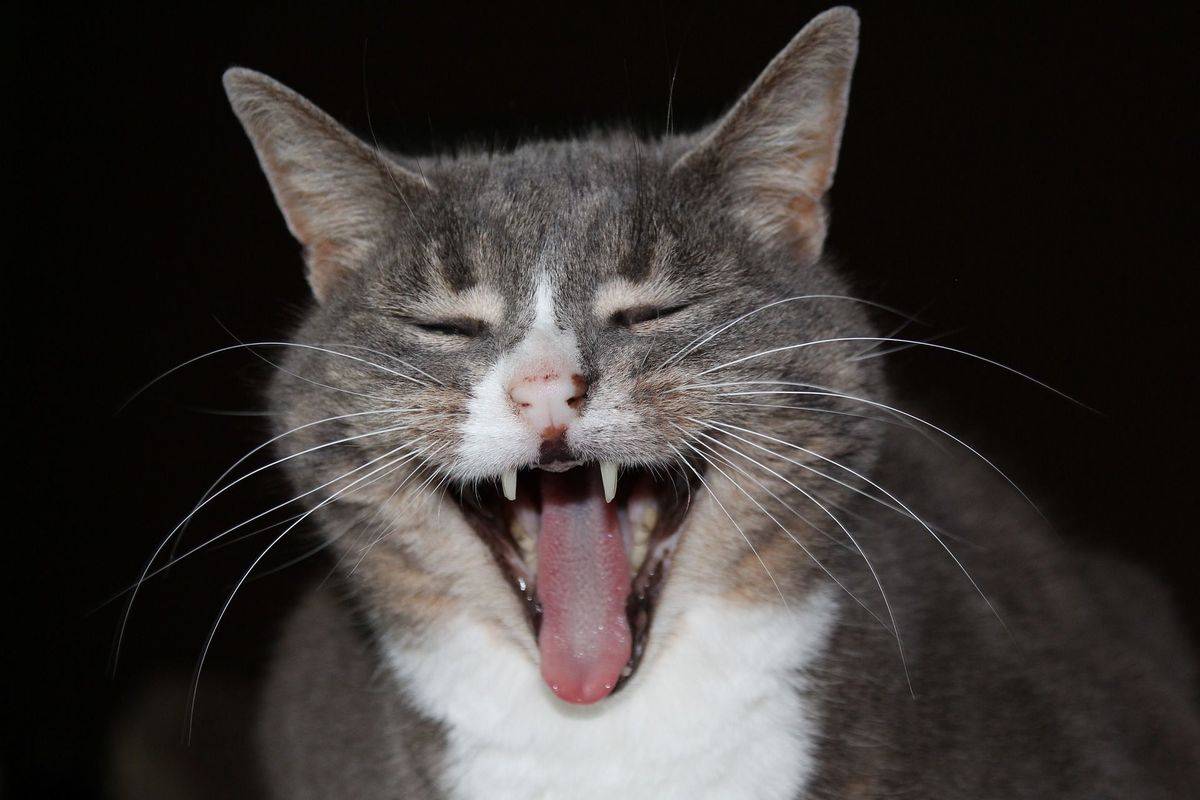
If you own a cat, then you know that they tend to be awake and active at the most inconvenient time: when you’re trying to sleep. This excess energy may then result in them running around the house and wailing.
These cries could have to do with the cat trying to catch prey within the house, or, if there is nothing to be found, they might be cries of frustration. If these cat-calls bother you, specialists recommend playing with your cat during the day in order to tire them out, in the hopes that they’ll be less active at night.
